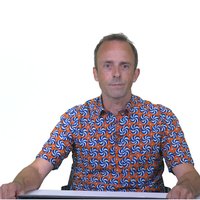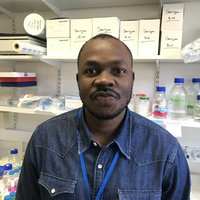Neglected Tropical Diseases
- Duration: 9 weeks
- Effort: 23 hours
- Pace: ~2h30/week
- Languages: French
What you will learn
At the end of this course, you will be able to:
- Explain the concept of Neglected Tropical diseases
- Describe the clinical features, diagnostic, treatment and biology of some Neglected Tropical Diseases
- Discuss how to overcome access challenges for Neglected Tropical diseases
- Outline the best ways to control Neglected Tropical Diseases
- Identify current research topics towards Neglected Tropical Diseases elimination
Description
The 20 Neglected tropical diseases (NTDs) are very ancient diseases affecting practically exclusively the poorest of the poor populations in the world which means hundreds of millions of people. The extreme lack of attention (neglect) for these diseases led the World Health Organization to elaborate the concept of NTDs in 1995. This MOOC will set out the different steps which led the concept to a reality.
This online course describe a large and representative set of NTDs such asLymphatic Filariasis, Visceral Leishmaniasis, Schistosomiasis, Human African Trypanosomiasis and Chagas disease. It covers their diagnostic, treatment and management of patients as well as their underlying pathogenic mechanisms. As most of these diseases are zoonosis, their study will be placed under the concept of “One Health”, encompassing veterinary, entomological, and specific epidemiological aspects.
This MOOC will show how the paradigm shift from individual management approach to an elimination broad programme has been the cornerstone of success. Finally, this MOOC will demonstrate how progress in elimination have stimulated research and innovation in new fields like computational biology and modeling.
Format
This MOOC is organized in 5 chapters. Each chapter is composed of 3 to 8 sessions. Each session is followed by two MCQs, allowing learners to test their understanding. At the end of each chapter, a set of MCQs is offered again. The videos are in English, with subtitles in English and French. The MCQs are in English and French.
Want to stay informed? Follow us on LinkedIn, X- Twitter and YouTube to discover all our events.
Prerequisites
This MOOC is intended for biology students, from the undergraduate to the graduate level, doctors, teachers, researchers, and more generally for all those interested in the neglected tropical diseases. A good scientific level is recommended to follow this MOOC (Bachelor of Science).
Assessment and certification
To follow this course, you can choose between two options:
- The Discovery Course gives access to videos, quizzes and discussions in the forum. No certificate is issued for this course. Registration is free.
- The Qualifying Course leads to a certificate. In addition to the activities of the Discovery Course, you will have to take a one-hour supervised distance learning exam, consisting of 30 multiple-choice questions (MCQs) and obtaining 18 correct answers. The registration fee for the Qualifying Course is 150€.
Successful completion of the Qualifying Course gives you the opportunity to apply for the Institut Pasteur Online Diploma of Infectious Diseases (DNM2IP), which consists of 5 certificates to Institut Pasteur MOOCs on infectious diseases. To learn more, visit the Institut Pasteur's web page dedicated to this diploma.
Course plan
- C1.1 The Neglected Tropical Diseases concept - Jean Jannin (SFMTSI)
C1.2 Intervention strategies Ibrahim - Socé Fall
C1.3 Impacts and consequences of Neglected Tropical Diseases - Jean Jannin (SFMTSI)
- C2.1 Diversity of NTD - Albis Gabrielli (WHO)
C2.2 Human African Trypanosomiasis - Brice Rotureau (Institut Pasteur) / Dramane Kaba (IPR, côte d’Ivoire)
C2.3 Visceral Leishmaniasis - Cléa Melenotte (APHP)
C2.4 Chagas disease - Pedro Albajar Vinas (WHO)
C2.5 Lymphatic filariasis - Michel Boussinesq (IRD)
C2.6 Schistosomiasis - Janelisa Musaya (University of Malawi)
C2.7 Onchocerciasis - Joseph Kamgno (Centre for Research on Filariasis and other Tropical Diseases, Cameroon)
- C3.1 Access as a key challenge for NTDs - Nathalie Strub-Wourgaft
C3.2 Access to treatment for NTDs -example of HAT - Gerardo Priotto (WHO)
C3.3 Access to diagnosis, format and distribution - Veerle Lejon (IRD)
- C4.1 Control of NTD: Control, elimination, eradication - Cléa Melenotte (APHP)
C4.2 Importance of Geographic Information System - Giuliano Cecchi
C4.3 Neglected and Tropical Diseases and sustainibility - Jean Jannin (SFMTSI)
C4.4 NTDs, zoonoses and One Health - Eric Fèvre (Liverpool)
- C5.1 Current research on Neglected Tropical Diseases and needs - Cléa Melenotte (APHP) and Brice Rotureau (Institut Pasteur)
C5.2 Quantitative biology approaches toward NTD elimination - Gerald Späth (Institut Pasteur)
C5.3 Reservoir and vector hosts - Philippe Solano (IRD)
C5.4 Insights into diagnostic methods for dengue - Cheikh Tidiane Diagne
C5.5 Research and development in NTD - Antoine Tarral (DNDi)
C5.6 Modeling - Kat Rock (Univ Warwick)
Course team
Brice Rotureau
Categories
Jean Jannin
Categories
Cléa Melenotte
Categories
Organizations
This course is supported by:
DAAD German Academic Exchange Service - CAIDERA Global project
Société Francophone de Médecine Tropicale et Santé Internationale
Institut Pasteur de Guinée
License
License for the course content

Attribution-NonCommercial-NoDerivatives
You are free to:
- Share — copy and redistribute the material in any medium or format
Under the following terms:
- Attribution — You must give appropriate credit, provide a link to the license, and indicate if changes were made. You may do so in any reasonable manner, but not in any way that suggests the licensor endorses you or your use.
- NonCommercial — You may not use the material for commercial purposes.
- NoDerivatives — If you remix, transform, or build upon the material, you may not distribute the modified material.
License for the content created by course participants

Attribution-NonCommercial-NoDerivatives
You are free to:
- Share — copy and redistribute the material in any medium or format
Under the following terms:
- Attribution — You must give appropriate credit, provide a link to the license, and indicate if changes were made. You may do so in any reasonable manner, but not in any way that suggests the licensor endorses you or your use.
- NonCommercial — You may not use the material for commercial purposes.
- NoDerivatives — If you remix, transform, or build upon the material, you may not distribute the modified material.







